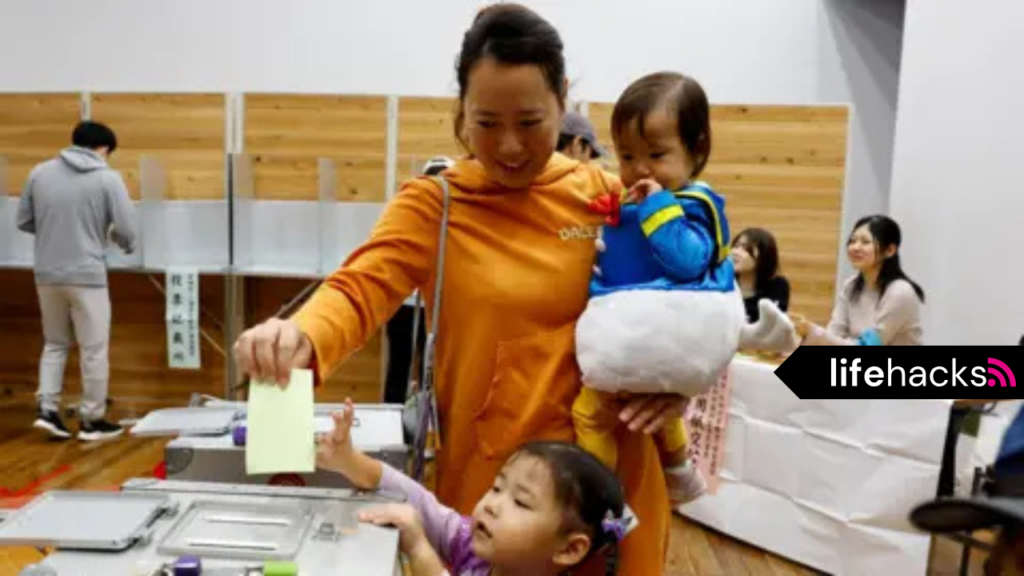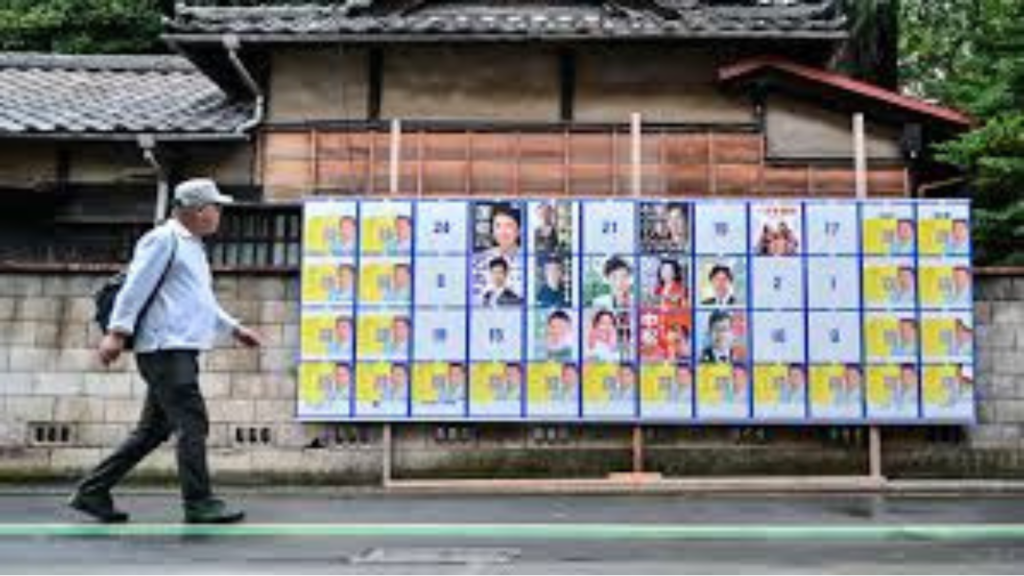Japan is witnessing a significant electoral event today as voters head to the polls in a snap election that could reshape the country’s political landscape. Prime Minister Shigeru Ishiba, who took office on October 1, faces his first major test as he seeks to secure a stable majority for his Liberal Democratic Party (LDP). With control of the House of Representatives at stake, the election will determine whether Ishiba’s administration can continue pursuing its policies or face stronger opposition in parliament.

Table of Contents
ToggleBackground: Why the Snap Election?
The snap election decision came within weeks after Ishiba had taken over the party presidency from Fumio Kishida, who resigned amid declining approval ratings and internal party pressures. A seasoned politician whose forte is defense and regional issues, Ishiba was counting on the dissolution of the lower house to reset the political agenda and consolidate his power before LDP support declined further.
The election also comes at a time when the economy is facing uncertainty: stagnant growth, pressures of inflation, and the long-term challenges of an aging population. Several recent corruption scandals involving LOP lawmakers have also taken their toll on the reputation of the party. Ishiba expects to capitalize on the unpreparedness of the opposition with early elections before further erosion of the LDP position takes place.

The Main Players and What's at Stake
The LDP, which has been in the majority for most of the last seven decades, leads a coalition with the Komeito party in the 465-seat lower house, though some polls predict the ruling coalition may lose up to 50 seats, risking making it tough for Ishiba to win a strong mandate. On the other hand, the Constitutional Democratic Party of Japan, or CDPJ for short, is the leading opposition party and is gathering momentum. The CDPJ, led by Kenta Izumi, has centered its campaign on economic disparity, public health, and transparency in government. It intends to capitalize on dissatisfaction with the LDP by positioning itself as a credible alternative for the tired-of-status-quo electorate. It also wants other opposition parties, like the Japan Innovation Party and Japanese Communist Party, to expand their influence in the new parliament.
A crushing defeat for the LDP would have a worsening effect on Ishiba’s situation in the legislature and inside his party, where opposing factions will then have a good chance to interfere with his leader position. On the contrary, a successful performance at the elections would give a green light to the prime minister for making required changes in the structure of Japan’s defense potential, economic reforms, and solving demographic problems.
Key Campaign Issues
| Policy Area | Current Issues | LDP's Position | Opposition's Position (CDPJ) |
|---|---|---|---|
| Economic Policy | Japan's economy faces stagnation and a rising cost of living. The national debt is among the highest in the world. | Proposes tax incentives and deregulation to stimulate growth, encouraging investment without significantly increasing public spending. | Advocates for more direct government intervention to support struggling households and increased social welfare funding. |
| Defense and Foreign Policy | Rising regional tensions due to China's military activities near Taiwan and North Korea's missile tests. | Supports a robust military posture and increased defense spending, with a focus on strengthening national defense. | Voices concerns about excessive militarization, promoting a balanced approach that emphasizes diplomacy. |
| Social Issues and Demographics | Rapidly aging population and shrinking workforce pose a long-term economic threat. | Proposes policies to increase birth rates and support families, such as better childcare services and tax breaks. | Calls for reforms to improve worker conditions and address gender inequality, aiming to boost workforce participation among women and older adults. |

Voter Sentiment and Election Day Atmosphere
Recent opinion polls confirm public support for the LDP has been lukewarm. A great number of voters feel frustrated with the political establishment, which they say has failed to deliver on everyday concerns. The section of young people are disengaged even more because they do not find that much of a difference in policy among main parties. This feeling has been exploited by the opposition, which sells itself as a new force. Campaigning has been characterized by the emphasis on local issues, with candidates addressing community-specific problems alongside broader national policies.
However, with the opening of the polling stations today morning at 7 a.m. local time, it seems the turnout was going to be moderate, according to analysts’ predictions of about 50% to 60% turnout. This level of participation could make a difference in the election outcome because higher participation usually is not in favor of the ruling party.
Possible Outcomes and Implications
| Scenario | Implications |
|---|---|
| LDP-Komeito Majority Maintained | If the ruling coalition holds onto a majority, it would likely embolden Ishiba to push forward with his policy agenda. However, a slim margin may still indicate a loss of confidence, potentially leading to internal party disputes. |
| LDP Falls Short of Majority | If the LDP fails to secure a majority, it would be a severe blow to Ishiba's leadership. The prime minister could face pressure to step down or be replaced by another LDP member, potentially leading to political instability. |
| Significant Gains by Opposition | A strong performance by the CDPJ and other opposition parties would likely force the LDP to negotiate and compromise on key legislative initiatives. It could also signal a shift towards a more competitive multi-party system in Japan. |
Also Recommended Read : Donald Trump thrusts McDonald’s into the political arena in final days of campaign
What’s Next?
Results are expected late tonight; polls close at 8 p.m., at which time counting will start. A clearer picture of Japan’s political future will emerge as results trickle in, but whatever the outcome, today’s election represents a critical juncture for the country. This may be a reaffirmation or an indication of a stronger opposition, but for sure, the election will shape policy for years to come.
For Prime Minister Ishiba, the stakes couldn’t be higher. A result that either consolidates his leadership or exposes him to challenges from within his party, Japan is grappling with an assemblage of complex domestic and international issues, and the complexion of its new parliament will hold the key to its future course.
